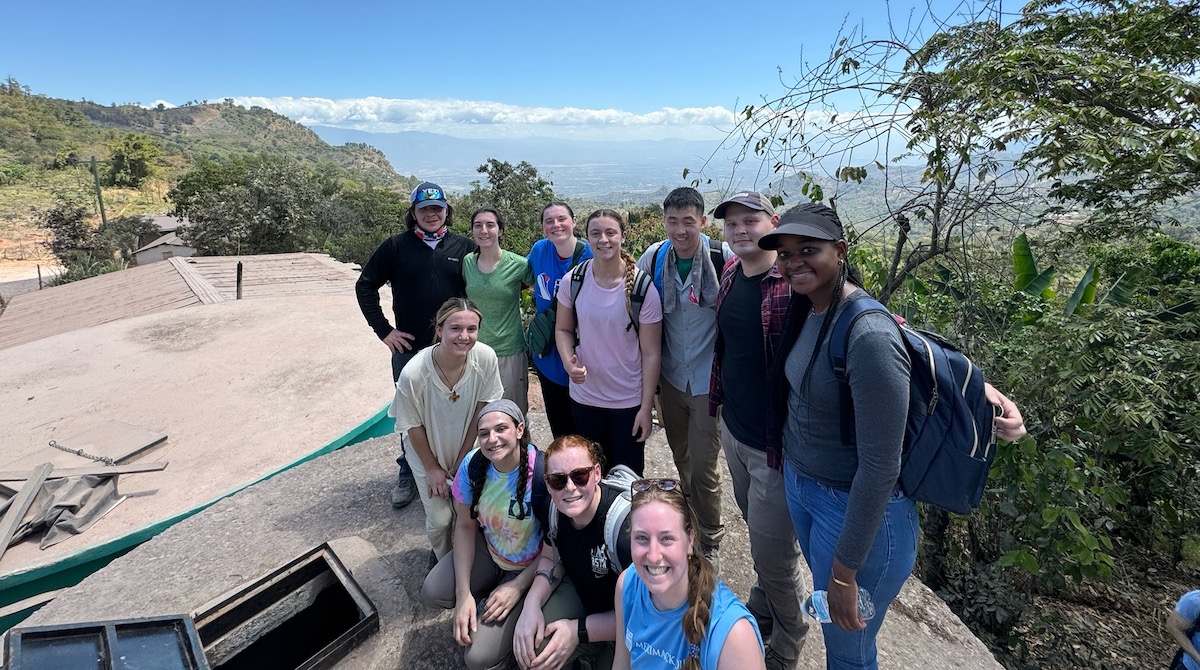Getting Help
Students and employees who have experienced sexual misconduct have the right to utilize local law enforcement and legal proceedings, as well as the College’s Title IX process. Individuals on campus can assist in making such reports and seeking such services, e.g., court issued protective orders.
Any person involved in an incident of sexual misconduct can receive information about their options, resources, medical attention and/or personal support from any of the following professionally trained personnel on campus:
- The Merrimack College Police Department sexual assault investigators – 978-837-5911
- Hamel Health Center – 978-837-5441
- The Counseling Center – 978-837-5444
- Residence Life staff (resident directors, area coordinators)
- Campus ministers
- Dean of Students
- Assistant Dean of Students for Wellness/ Director of Community Standards
- Assistant Director of Community Standards
Medical Attention and Evidence Collection
The College encourages victims/survivors of sexual assault to seek medical attention, and will assist them with doing so by transporting them to the hospital in an unmarked police vehicle. Victims/survivors are encouraged to have a support person of their choosing accompany them to the hospital.
Medical attention is important for the following reasons:
- Evaluation and treatment of trauma
- Treatment of possible exposure to infection or pregnancy
- Properly gather forensic evidence
- Many hospitals, including Lawrence General Hospital, employ trained sexual assault nurse examiners (SANE) who will work directly with and support victims/survivors at the hospital. They are trained to collect forensic evidence, check for injuries, and provide preventative treatment for pregnancy and exposure to sexually transmitted infections.
- There is a limited window of time in which forensic evidence can be collected and preserved. Massachusetts Guidelines state that a Sexual Assault Evidence Kit can be completed on an adult survivor up to 120 hours (five days) after the assault. This is why it is important to obtain medical attention as soon as possible.
- Having a Sexual Assault Evidence Kit completed does not mean that a survivor has to commit to a criminal investigation and/or a college conduct investigation, but it does ensure that any potential evidence will be collected.
- Any victim/survivor of sexual assault who has a sexual assault forensic evidence and/or exam collected at a Massachusetts emergency room is eligible for compensation to cover some expenses from the emergency room visit. For payment by Massachusetts Victim Compensation, the sexual assault exam forensic collection kit must be opened. The victim’s name, address, and birthdate are sent to the Attorney General’s office and kept confidential. More detailed information can be found here:
Victims/survivors may delay in reporting a sexual assault to police and/or other mandated reporters.
This is not uncommon and can be due to a variety of factors. Passage of time does not mean that an assault can’t be reported. MCPD officers are prepared to take reports of sexual assault no matter how much time has passed since the event.
Please call the Merrimack College Police Department if you would like more information about reporting a sexual assault (978-837-5555).
Reporting to Merrimack Police
If a sexual assault occurs on campus, it can be reported to the Merrimack College Police Department. When the campus Police Department is contacted, an officer will assist the survivor in obtaining medical care and counseling, and will conduct a preliminary investigation and gather physical evidence. Any investigation will be conducted by an officer trained in sexual assault investigation and certified by the Massachusetts Criminal Justice Training Council, who will discuss the results of the investigation with the survivor and explain to the survivor his or her rights and options. The survivor’s identity is only disclosed to those people necessary to conduct an investigation, unless required by law (for example, the college is obligated to report the sexual abuse of a minor). Above all, the survivor is treated with respect and consideration.
Nonconfidential Reporting
Survivors are encouraged to speak to college officials who can help them make formal reports and generate investigations of incidents, including the Dean of Students, Assistant Dean of Students for Wellness, Office of Community Standards, Residence Life and the Merrimack College Police Department. Formal reports made to the college will be investigated and pursued through the Student Conduct process. Formal reports are not strictly confidential; however, only college officials who need details of the incident in order to pursue the Student Conduct process will be notified.
Confidential Reporting
If a survivor wishes to keep the details of the incident confidential, they should speak with on-campus counselors or health providers at the Hamel Health Center (978-837-5441) and The Counseling Center (978-837-5444).
They may also speak to an off-campus crisis center, such as:
- National Sexual Assault Hotline, 1-800-656-HOPE.
- Boston Area Rape Crisis Center, 1-800-841-8371.
- YWCA of Greater Lawrence, 1-877-509-9922.

